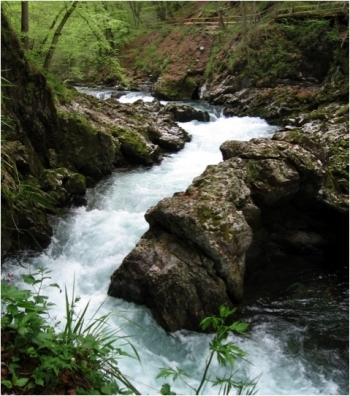Environmental & Natural Resource Accounting (main)
Environmental & Natural Resource Accounting
The natural world requires different standards of success and requirements for meeting goals than traditional businesses. Companies usually focus on the financial aspects of its activities, especially profit. Nature is about survival and coexistence. Valuation is not necessarily the end product or gain, but the balance, continuation and evolution of its systems and citizens. In Environmental and Natural Resource Accounting, a community, business or government would not just measure what is left to take of a resource, but figure out its own role in conserving it, who else relies on it, and the cost of losing it. These aspects should be as important, if not more so, than how much shareholders earn. If a business relies on a raw material to make its product, the supply of that one input will affect its ability to keep producing. On a larger scale, if a community relies on a natural resource to keep living conditions safe and healthy, it should matter if that resource can continue to support those conditions.
Measuring, recording and tracking the value of what nature gives and does for human communities provides a way to understand and value the earth in dollars and cents. By accounting for what the earth gives and does, people then have a basis for paying it back.
-
 Featured Article
Featured Article  Wind turbine bat mortalityWind turbine bat mortality is a significant adverse impact of large scale wind energy development. Wind energy has become an increasingly important sector of the renewable... More »
Wind turbine bat mortalityWind turbine bat mortality is a significant adverse impact of large scale wind energy development. Wind energy has become an increasingly important sector of the renewable... More »
 Total economic valuation of threatened and endangered species Last Updated on 2014-06-28 17:32:13 Attribution for this article should be cited as John Loomis, Leslie Richardson and Arthur Edwards Protecting habitats for species threatened with or in danger of extinction is often aided by demonstrating the economic benefits to such protection comparable to the benefits of developing the habitat. The financial returns to commercial development are often obvious and concentrated in the hands of a few. The benefits of protecting threatened and endangered species(T&E) are widespread to hundreds of millions, if not several billion people on the planet. However, if the monetary benefits of protecting T&E species are not measured, then it appears that commercial development is of greater economic use than preservation of the habitat. This feeds the false dichotomy of the “economy versus the environment”. This article will show, the... More »
Total economic valuation of threatened and endangered species Last Updated on 2014-06-28 17:32:13 Attribution for this article should be cited as John Loomis, Leslie Richardson and Arthur Edwards Protecting habitats for species threatened with or in danger of extinction is often aided by demonstrating the economic benefits to such protection comparable to the benefits of developing the habitat. The financial returns to commercial development are often obvious and concentrated in the hands of a few. The benefits of protecting threatened and endangered species(T&E) are widespread to hundreds of millions, if not several billion people on the planet. However, if the monetary benefits of protecting T&E species are not measured, then it appears that commercial development is of greater economic use than preservation of the habitat. This feeds the false dichotomy of the “economy versus the environment”. This article will show, the... More »  Organic farming (Environmental & Natural Resource Accounting) Last Updated on 2014-05-01 17:45:47 Organic farming is a form of agriculture that relies on crop rotation, green manure, compost, biological pest control, and mechanical cultivation to maintain soil productivity and control pests, excluding or strictly limiting the use of synthetic fertilizers and synthetic pesticides, herbicides, plant growth regulators, livestock feed additives, and genetically modified organisms. Arguably, the term can be interpreted to include animal husbandry practices. Also, often there is confusion as to use of the term organic farming, especially since many food processors choose to use the term organic to induce consumers to purchase a food brand, even though all the standards of organic farming may not have been met. Organic agricultural methods are regulated internationally and enforced legally by many nations, based in large part on the standards set by the International Federation of Organic... More »
Organic farming (Environmental & Natural Resource Accounting) Last Updated on 2014-05-01 17:45:47 Organic farming is a form of agriculture that relies on crop rotation, green manure, compost, biological pest control, and mechanical cultivation to maintain soil productivity and control pests, excluding or strictly limiting the use of synthetic fertilizers and synthetic pesticides, herbicides, plant growth regulators, livestock feed additives, and genetically modified organisms. Arguably, the term can be interpreted to include animal husbandry practices. Also, often there is confusion as to use of the term organic farming, especially since many food processors choose to use the term organic to induce consumers to purchase a food brand, even though all the standards of organic farming may not have been met. Organic agricultural methods are regulated internationally and enforced legally by many nations, based in large part on the standards set by the International Federation of Organic... More »  USA Federal crop insurance Last Updated on 2011-05-12 00:00:00 Summary In preparation for the next farm bill, the 112th Congress will likely continue reviewing the effectiveness and operations of the federal crop insurance program as part of the farm safety net. In 2010, the House Committee on Agriculture sought input from farmers and others on the program, and the U.S. Department of Agriculture (USDA) revised its agreement with the crop insurance industry to deliver crop insurance to farmers following a rapid rise in government costs of the program. This report provides a primer on the federal crop insurance program. The federal crop insurance program began in 1938 when Congress authorized the Federal Crop Insurance Corporation. The current program, which is administered by the U.S. Department of Agriculture’s Risk Management Agency (RMA), provides producers with risk management tools to address crop yield and/or revenue losses on... More »
USA Federal crop insurance Last Updated on 2011-05-12 00:00:00 Summary In preparation for the next farm bill, the 112th Congress will likely continue reviewing the effectiveness and operations of the federal crop insurance program as part of the farm safety net. In 2010, the House Committee on Agriculture sought input from farmers and others on the program, and the U.S. Department of Agriculture (USDA) revised its agreement with the crop insurance industry to deliver crop insurance to farmers following a rapid rise in government costs of the program. This report provides a primer on the federal crop insurance program. The federal crop insurance program began in 1938 when Congress authorized the Federal Crop Insurance Corporation. The current program, which is administered by the U.S. Department of Agriculture’s Risk Management Agency (RMA), provides producers with risk management tools to address crop yield and/or revenue losses on... More »  Potentials of ecosystem service accounting at multiple scales Last Updated on 2010-06-02 18:46:03 To acknowledge the value of natural capital, one of society’s important assets, a better understanding of the patterns and spatial scales at which ecosystem services operate is essential to developing ecosystem services valuation (ESV) to support landscape-level conservation and land management plans. Table 1. The four different classes of ecosystem services defined by the Millennium Ecosystem Assessment (MA 2005) Provisioning: products obtained from ecosystems (e.g. food, fiber, fresh water) Regulating: benefits obtained from the regulation of ecosystem processes (e.g. air quality, climate and water regulation) Cultural: nonmaterial benefits people obtain from ecosystems (e.g. spiritual enrichment, recreation) Supporting: services necessary for the production of other ecosystem services (e.g. nutrient and water cycling, photosynthesis Ecosystem services (ESs) are... More »
Potentials of ecosystem service accounting at multiple scales Last Updated on 2010-06-02 18:46:03 To acknowledge the value of natural capital, one of society’s important assets, a better understanding of the patterns and spatial scales at which ecosystem services operate is essential to developing ecosystem services valuation (ESV) to support landscape-level conservation and land management plans. Table 1. The four different classes of ecosystem services defined by the Millennium Ecosystem Assessment (MA 2005) Provisioning: products obtained from ecosystems (e.g. food, fiber, fresh water) Regulating: benefits obtained from the regulation of ecosystem processes (e.g. air quality, climate and water regulation) Cultural: nonmaterial benefits people obtain from ecosystems (e.g. spiritual enrichment, recreation) Supporting: services necessary for the production of other ecosystem services (e.g. nutrient and water cycling, photosynthesis Ecosystem services (ESs) are... More »  Green careers (Environmental & Natural Resource Accounting) Last Updated on 2010-04-24 03:20:27 Evolution of the green careers concept A green career is a post with upward mobility, which contributes to sustainable use of resources, reduces waste and pollution, or otherwise benefits the environment. Only until recent years, for most people the idea of green jobs or green careers would have likely been limited to work in a natural science or natural resource area. This earlier perception included jobs such as a forester, natural resource manager, or a researcher studying one of the many facets of the natural world such as botany, ecology, wildlife biology, and ecosystem functioning. A clearer perception of the finite nature of each of the Earth's resources has emerged in the last several decades, especially regarding non-renewable energy resources based upon fossil fuels; furthermore, man has learned that the continuation of the resource consumption patterns of... More »
Green careers (Environmental & Natural Resource Accounting) Last Updated on 2010-04-24 03:20:27 Evolution of the green careers concept A green career is a post with upward mobility, which contributes to sustainable use of resources, reduces waste and pollution, or otherwise benefits the environment. Only until recent years, for most people the idea of green jobs or green careers would have likely been limited to work in a natural science or natural resource area. This earlier perception included jobs such as a forester, natural resource manager, or a researcher studying one of the many facets of the natural world such as botany, ecology, wildlife biology, and ecosystem functioning. A clearer perception of the finite nature of each of the Earth's resources has emerged in the last several decades, especially regarding non-renewable energy resources based upon fossil fuels; furthermore, man has learned that the continuation of the resource consumption patterns of... More » 